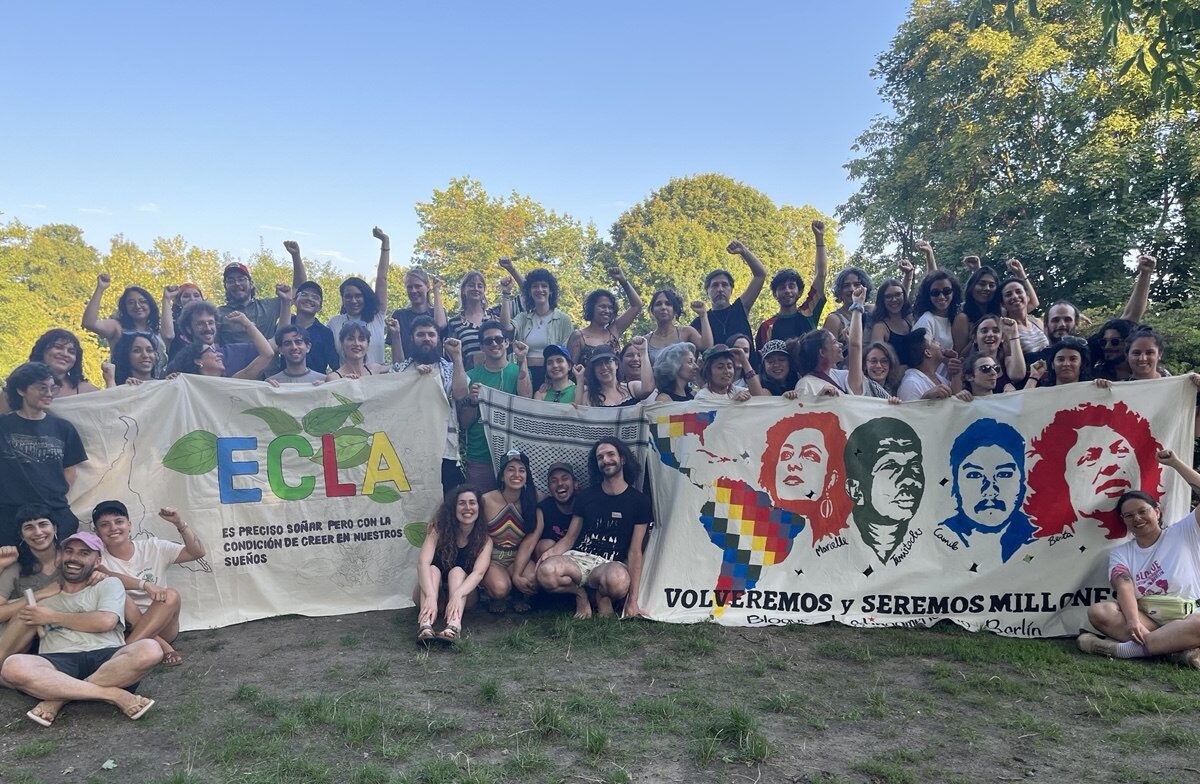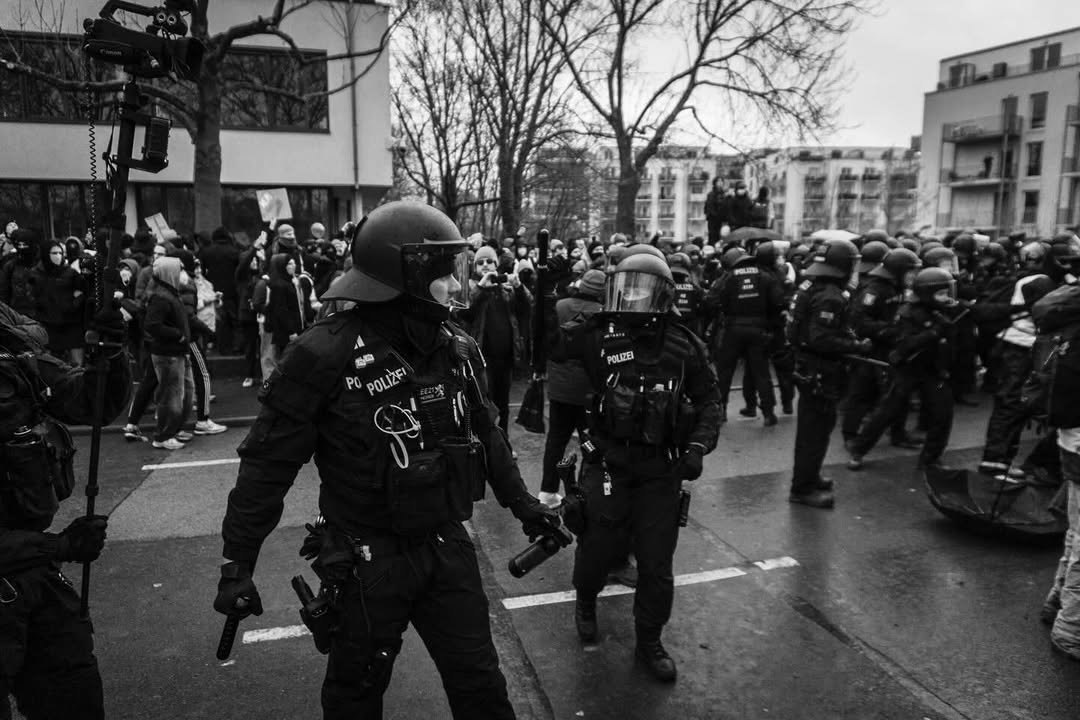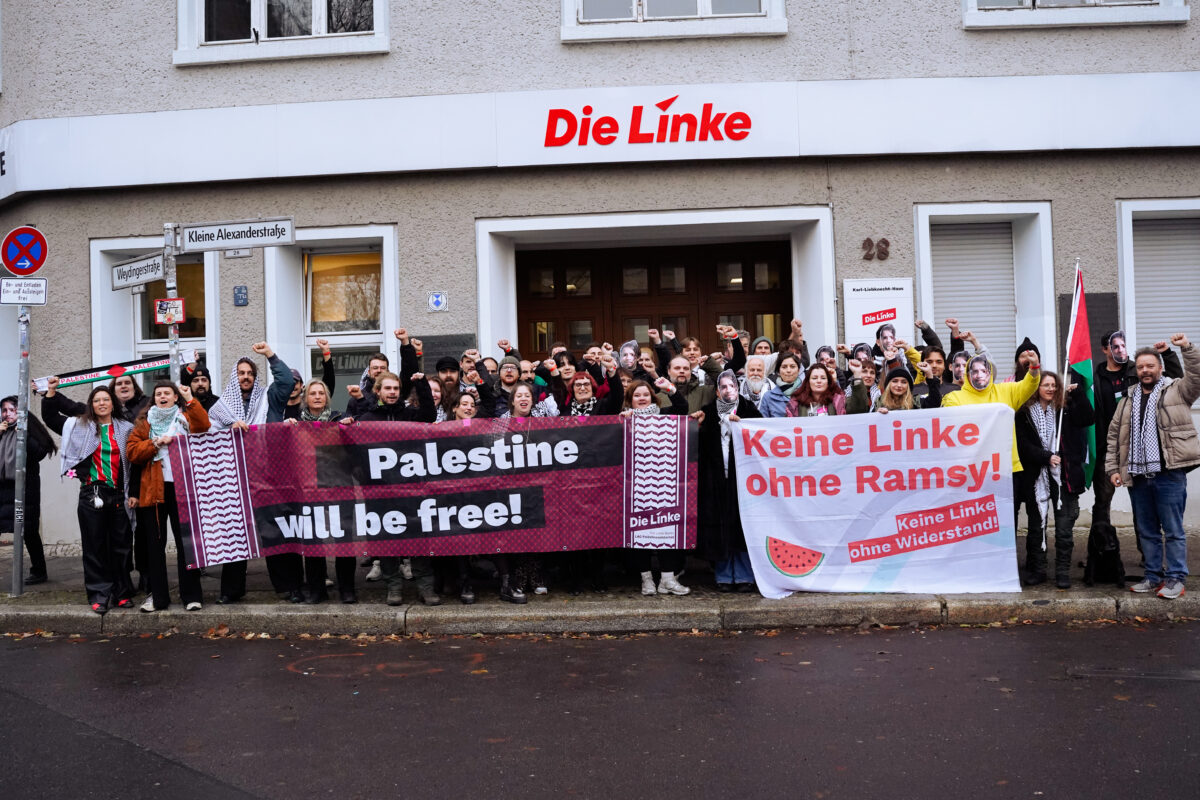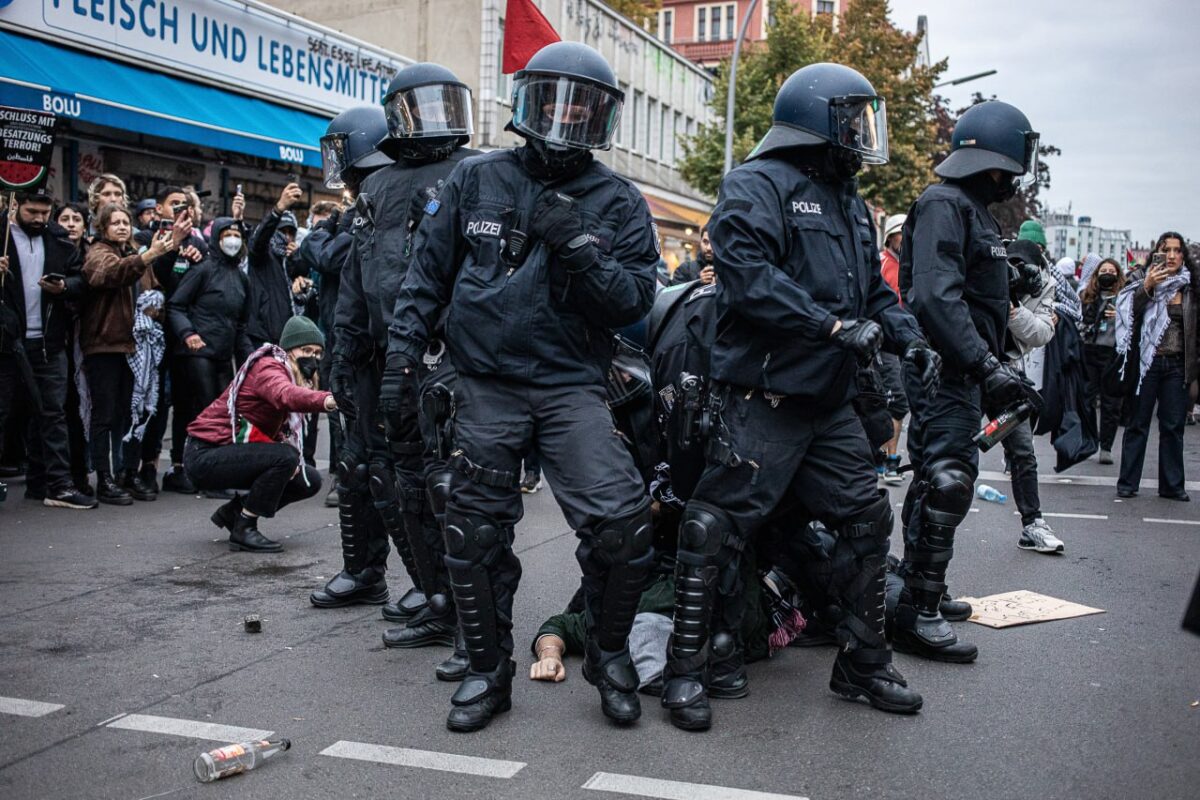Since its creation in 2018, Bloque Latinoamericano has directed most of its political work towards transforming the many dimensions of the eminently precarious conditions of the migrant life in Berlin. This precariousness is not only defined by how migrant labor contributes to the reproduction of capital, and the workforce in global centers such as Germany—most often inserted into sectors where exploitation is brutally manifested, such as gastronomy, platform economy jobs, cleaning, and care work. It is also revealed in the political exclusion from the most fundamental right that defines any democracy: the ability to vote.
This is neither a new feature of German history, nor something specific to the Latin American migrant population. At least since the massive displacements of the so-called “guest workers” (Gastarbeiter)—mainly from Turkey, Greece, and Italy, who, after the Second World War, contributed to the “miraculous” recovery of the German economy (Wirtschaftswunder)—migrants and their descendants have been systematically excluded from citizenship and the right to vote in this country. These antidemocratic and racist tendencies have consolidated over the decades to the point where today more than 14 million people live in Germany without having German citizenship (16.7% of the total population), of whom 11 million (13.1%) are of voting age. 1.5 million of these people were born in this country but do not hold a German passport.
In a political context characterized not only by the rise of far-right forces, but also by a generalized conservative, repressive, and militaristic turn across the entire political spectrum, migrants have become the fundamental public enemy, replacing the rich vs. poor contradiction that dominated the narrative in previous decades. As we have noted on various occasions before, racist narratives portray migrants as the scapegoats for poor economic management, the housing crisis, insecurity, and antisemitism. However, economically, migrant labor today is not replaceable in the German economy. A total expulsion or halt of migration is neither possible, nor in the interests of the various factions of big capital, nor of the political parties of the status quo.
Nonetheless, in this ominous landscape, some progressive developments have begun to emerge that we must deepen through collective struggle. One of the most significant ones has been the strong electoral performance and renewal process of the leftist party Die Linke, following the last elections in February this year. Much of the optimistic mood found expression in the figure of Ferat Koçak, who became the first Die Linke national MP with a migrant background to win a direct mandate in the history of the Federal Republic of Germany. His candidacy was supported by broad sectors of the left and of civil society, which, although not part of the party structure, placed their trust in voting for Koçak as a way to block the advance of the far-right (AfD) and contribute to renewing traditional ways of doing politics, with a new style, more closely linked to the concrete needs of the working and migrant populations living in the Berlin neighborhoods most affected by criminalization and repression.
For these reasons, if the fundamental goal of the left-wing forces and the rest of the political parties is to stop the advance of the right, then granting voice and vote to the sector most targeted by that advance becomes inescapable: only by giving voice to the most precarious bodies, who are the favored targets of fascist threats, can we defeat them!
Some campaigns and civil society initiatives have begun the important task of raising these issues in parliamentary debates and within the public opinion. However, Bloque Latinoamericano considers it fundamental that the demand for migrant voting rights is not limited to lobbying, but instead becomes part of a struggle through which a broad political front and social movements expand the social gains of the German working class. Migrant voting rights are non-negotiable: they are won in the streets, at the ballot box, and in history!
This is a translation of an article in Spanish from the Bloque Latinoamericano website. A German version of the article is also available. Translation: Inês Colaço. Reproduced with permission.




